Nothing feels worse than a game that falls flat. There can be a myriad of reasons why—maybe the game genuinely sucks, maybe the rulebook was too difficult, or maybe the players were taught how to play but not how best to play, leading to them being demolished by their teacher. However it happens, these scenarios are not present in CRYPTID, which has earned the moniker of “fragile” for how simple mistakes can damage the experience of playing. You see, people make errors in every game, but they rarely affect everyone to the degree they do in CRYPTID.
Before discussing the mechanics, we must first define “fragility.” Fragility differs from overly complicated or fussy. It refers to a game with a fundamental flaw that can make it nearly unplayable under the wrong circumstances. For example, maybe the players need to behave in a certain way because the mechanics alone are not that compelling, and if the participants do not buy in, the experience falls flat. Excessive randomness can also be a source of fragility. The original BETRAYAL AT HOUSE ON THE HILL was infamous for heavily one-sided scenarios, where unfortunate tile placement leads to either the villain or heroes winning instantly upon the haunt reveal. Similarly, NEMESIS doesn’t curb the types of enemies that arrive, so the most powerful Queen could be the first to appear far too soon and wipe everyone out unsatisfyingly.
CRYPTID comes with dozens of scenarios, with hundreds more online. Each involves arranging the 8 pieces of the board into a specific array, then gives each player one starting fact to read from their booklets. These facts give one piece of information about the Cryptid’s hiding spots, ranging from the type of terrain they occupy to their location in relation to various landmarks or animals. One hex on the board fulfills the combined hints, so players make guesses to deduce their opponents’ hints and identify where the Cryptid is. The guesses involve selecting an opponent and a location and asking if the Cryptid could be there given their hint; if the guess is incorrect, the asker must offer information by identifying one spot that does not obey their clue.
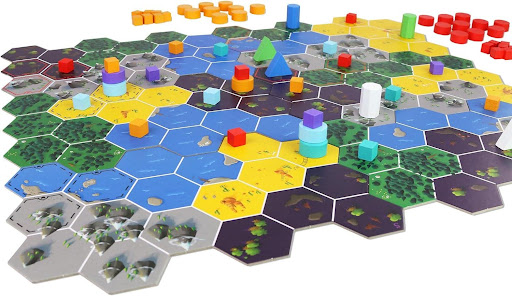
CRYPTID’s fragility rests in how much it relies on player competency. In the eternal debate between multiplayer solitaire and interactive slugfests, one advantage of the former is that other people’s proficiency usually doesn’t affect my enjoyment. I’m doing my own thing, building my own engine, tableau or puzzle, and I don’t care about how everyone else is doing. On the other hand, highly interactive games are less enjoyable if there is not an even-handed understanding of how to play well. Games like HARVEST MOON are built on balancing acts and ebbs and flows, which are more difficult to teach when using simple mechanisms. For example, CONTAINER is an auction game where the winning bid is given to another player. Explaining the game is not difficult, but getting people to calculate values is much more difficult to do—it’s easy to overbid and essentially throw the game to someone.
Since the hints in CRYPTID are kept secret, someone can’t ask for help or clarification; you have to hope you as the teacher have done a good job of explaining the game so they can figure out the hints themselves. Some of the hints are positive and some are negative, further adding to the game’s fragility because it’s easy to mix up between “can” and “can’t.” If someone accidentally gives out incorrect information in CRYPTID, the game might become unbeatable because it becomes impossible to figure out their hint and thus impossible to identify the one spot. CRYPTID is unique among the many deduction games that revolve around asking questions and getting honest answers from opponents (GUESS WHO, CLUE, THE LOST CODE, etc.), because mistakes in those games usually only affect the person asking the question. It’s possible to glean information from other people’s guesses, but you will likely win without ever caring about their dialogue. In CRYPTID, on the other hand, you must pay attention to other player’s answers. As a result, players have to police themselves to make sure they don’t make any errors because any slip-ups affect everyone rather than just themselves.
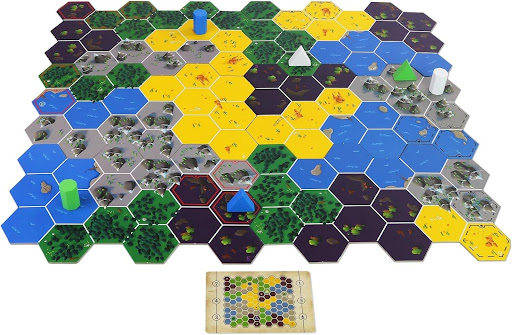
In the case of a game like HANABI or THE CREW, where players can mess up the game through misunderstandings, it’s easy to shuffle the cards and try again with minimal difficulty. If there’s an error in CRYPTID, however, it’s harder to restart the game because that requires grabbing a new scenario, rearranging the board, handing out new hints, and hoping everyone readjusts to the new parameters rather than getting stuck on the previous round. Errors are not easily visible either, whereas you can pause in the middle of a hand of HANABI or THE CREW and start over.
I do not own every game in my top ten; I only own games that I can teach and run. If someone else wants to run it, I’ll gladly join because I dig a lot of aspects of CRYPTID. The idea of “honest misdirection” is fascinating. When you guess a spot that doesn’t fit someone’s clue, you have to identify a spot that does not fit your clue. Unlike other games that allow you to lie or bluff, you have to tell the truth here, so it takes craft to figure out how to tell the truth without giving any new information. However, I don’t want to run or teach the game because it needs a skilled hand to guide it and I’ve found I can’t be that person.
CRYPTID illustrates the risk of having a highly interconnected game built on both secrets and honesty, as any inadvertent lie can ruin the experience far too easily. Unlike other deduction games, you are dependent on everyone’s answers, and it’s not easy to root out misunderstandings. Fragile games are capable of high-highs and low-lows. While I respect the unique approach to questions and answers, the highs of CRYPTID are not worth the risk.



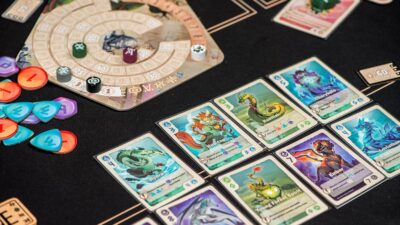
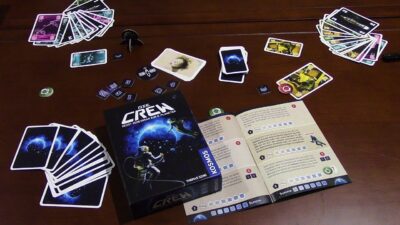
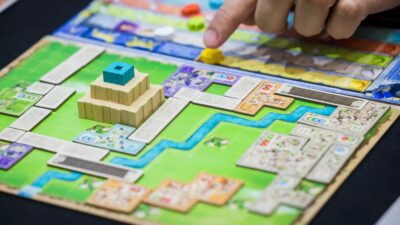
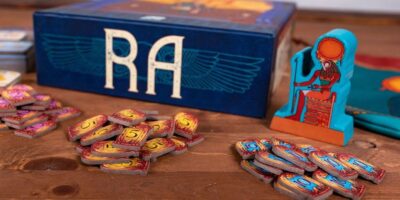
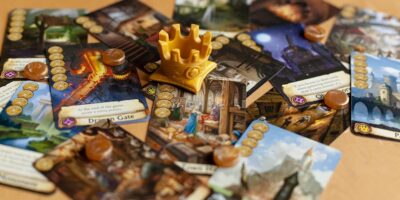


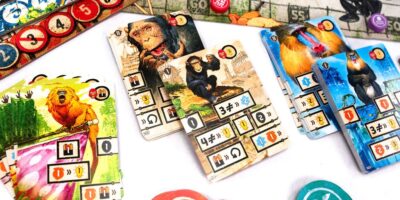
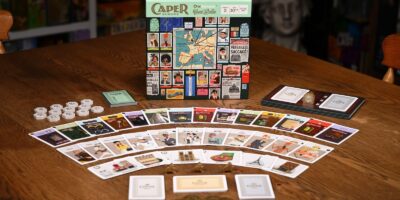




Comments